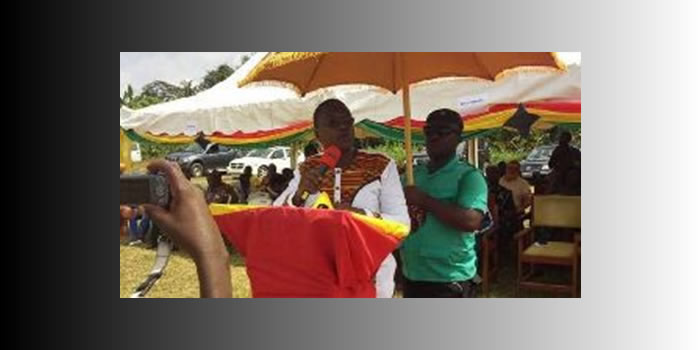Adverts
ENVIRONMENT
Shama DCE bemoans inadequate public engagements on mining projects
The District Chief Executive for Shama in the Western Region, Joseph Amoah, has expressed his frustrations over the level of community engagements undertaken by mining or quarrying companies prior to the commencement of projects in the district.

Date Created : 2/21/2018 4:06:15 AM : Story Author : Ghanaweb
According to him, some of the companies seeking to start projects in his jurisdiction take advantage of the ignorance of members of the community on environmental issues when satisfying environmental provisions in the law.
The Environmental Protection Agency (EPA) requires that companies looking to start projects in communities must carry out an Environmental Impact Assessment as well as a public hearing should the baseline studies show that the proposed project will impact the lives of the people in the community or the environment.
This provision in the Environmental Assessment Regulation 1999 LI 1652 is meant to ensure that steps are taken to mitigate possible negative impacts on residents and the environment.
However, the District Chief Executive for the Shama District in the Western Region Joseph Amoah says some companies prey on the ignorance of communities in his district to push through with their projects.
He said “the status quo is that they will bring you a document from EPA of an application an individual or organization who will want to do quarry in the area. So you will have to post notices in the various communities and at public places for the reaction of the people.”
“But I have not been comfortable in the sense that the question one will want to ask is how many of the members within these communities will have the time to go and be reading these things, taking into consideration the level of literacy of the people in the community? At the end of the day, you may not get any feedback contrary to what they want to do. At the end of the day, the license is given, approval is given and they start operations. Soon after, the people start agitating over environmental issues.”
His concerns were corroborated by the Extractive Officer at Friends of the Nation, a socio-environmental advocacy NGO in the Western Region, Solomon Kusi Ampofo.
He stated that even though communities sometimes are engaged and the intentions of the company communicated to them, they have little clue about the possible effects of what they are signing up for.
“A public hearing is supposed to be a forum where the proponent will come and articulate clearly what the baseline survey is, what the potential impacts are and how they are going to address it, and gets feedback from the community. But largely community participate these forums as a platform to trade their needs. So instead of the people to have a full understanding of the impacts and how it is going to affect them, they engage in this process by demanding for social amenities and also for jobs, which is clearly not what the process is about.”
He called for more public education of what the processes require so communities participate fully and contribute meaningfully in order to deal with environmental potential impacts ahead of projects.

